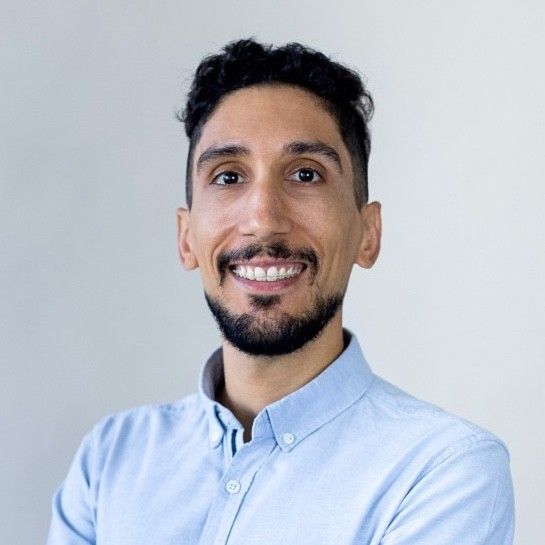CareerThe Omelette Guru
Oriol Gual
The Contest
Brrr, brrr, brrr. Hellen’s phone lights up. Bob again. What now?
Omelette contest.
Next Saturday, 10 AM, International Cooking School.
Are you in?
They’d joked for months about entering some kind of cooking contest. They both love MasterChef, but that show’s a bit much. This? This could be fun.
Hellen stares at the message. She’s tired of back-to-back HR meetings and vague motivational quotes.
Bring it on.
Neither of them knows how to make a proper omelette.
Bob does research
Bob approached it like he approaches most things: from a safe distance, with a browser full of tabs.
He read about egg proteins, thermal gradients, and the molecular behaviour of butter. He watched chefs slice through omelettes like they were cutting silk. He took notes. Lots of notes.
He ordered a precision thermometer. He debated pan materials on Reddit. He created a spreadsheet to track whisking times, resting periods, pan temperatures.
He learned about every omelette ever made: Omelette de la mère Poulard, Tortilla de Patata, Tamagoyaki, Kuku, Frittata, even one served in a volcano-heated stone pan in Iceland.
He didn’t cook though, after all, The Omelette Guru didn’t need to.
Hellen buys 12 dozen eggs
Hellen bought eggs. A lot of them. She didn’t count, just filled a shopping basket until people stared.
She went home, took out a pan, turned on the heat, and cracked the first egg directly onto cold metal. It stuck. Badly.
The second omelette burned. The third collapsed into something closer to a crepe. The fourth had eggshell in it. She ate it anyway.
By the fifth, she’d stopped checking recipes. They didn’t seem to help. She was learning faster from the mess.
By attempt number 15, something clicks.
By number 50, she knows how the eggs sound when they’re right.
By number 80, her wrist flicks automatically.
By number 120, she’s wondering if this is bad for cholesterol.
Saturday. 10 AM.
Bob stood at his station like a person about to defuse a bomb. Everything was in place, thermometer, notes, a spotless apron, even a backup spatula in case the first one failed. The burner lit and the pan began to heat, everything was going accordingly. The egg stuck. The flip was off. The timing felt wrong, He knew what the texture should be, but couldn’t make his hands produce it. How was this even possible? After all, he was The Omelette Guru.
Hellen didn’t have a plan, just muscle memory and instinct carved out of 144 broken eggs. She moved quickly, not out of confidence but because thinking slowed her down. Her omelette wasn’t elegant, but it held. She almost dropped the pan halfway through and grinned as she recovered, it felt like home. She forgot the garnish, used too much salt, maybe overcooked the edges. But she finished. And for the first time all week, she stepped back and actually looked at what she’d made. Not perfect. But hers.
When the judges returned, Gordon Ramsay himself took the mic. Cameras flashed. Everyone held their breath.
“And the prize for Best Omelette goes to…” he paused, with a smirk. “Jean-Claude.”
Of course. Fucking Jean-Claude, always taking their dreams.
Enough with the omelettes. This is about learning.
Was Hellen's approach better than Bob's? She made progress. She delivered something. She showed up, even if it was messy.
But was it good? Not entirely. Brute force can get you started, but it rarely gets you to mastery. You can spend hundreds of hours flailing without understanding why things work or don't. That's where theory becomes a force multiplier. Manuals, documentation, books, videos—they give you names for the problems you're already facing. They help you ask better questions. But they only click once you've tried, failed, and started to care.
This isn't a call to ignore theory. It's a challenge to stop hiding behind it. Most of us aren't like Bob because we love theory; we're like Bob because we're scared to try. "But I don't even know how to start," you might say. That's okay! Begin by copying something (and no, letting Cursor do everything doesn't count). Then try to extend it somehow. Or dive deep into source code and follow the execution path. Once you've shed that initial fear, start again from scratch with newfound context.
If there's one thing to take away from this story, it's this:
Start like Hellen. Ask questions like Bob.
Or, as Roger Skaer once put it:
The more you fuck around, the more you find out.
You know what? This calls for a manifesto. Because what's more on-brand for a millennial writing about personal growth than packaging wisdom into a shareable, pseudo-inspirational list? (I'm only half joking.)
The FAFO Manifesto
(Fuck Around, Find Out)
Start before you’re ready.
You won’t understand it all up front. Do it anyway.
Read the docs, touch the code.
No one learns by watching someone else click around.
If you’re not stuck, you’re not learning.
Confusion means you’re in the right place.
Ask better questions.
Try first. Then ask. Otherwise, you’re outsourcing the thinking.
No one’s a “natural.”
Some people just spent more time practising. Your turn to shine.
Make it safe to fail.
No one experiments if they’re scared to look dumb.
Share how you learn, not just what you know.
Answers are easy. Teaching the mindset is harder.
